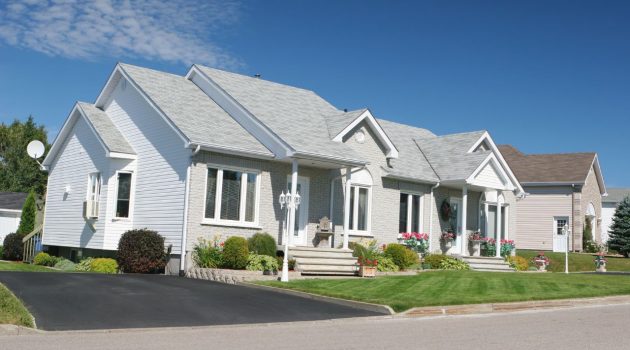Renting your first home can be both an exciting and daunting experience. As a first-time home renter, it’s essential to be prepared and know what to expect in the process.
Setting a realistic budget is a crucial first step in finding your ideal rental home. Be sure to consider the monthly rent and other expenses like utilities, parking, and possible pet fees.
Once your budget is in place, it’s time to search for your perfect home. Pay close attention to location, amenities, and the rental agreement terms.
Don’t hesitate to ask questions and seek clarifications when necessary, as this can save you a lot of trouble.
1. Understanding Rent and Lease
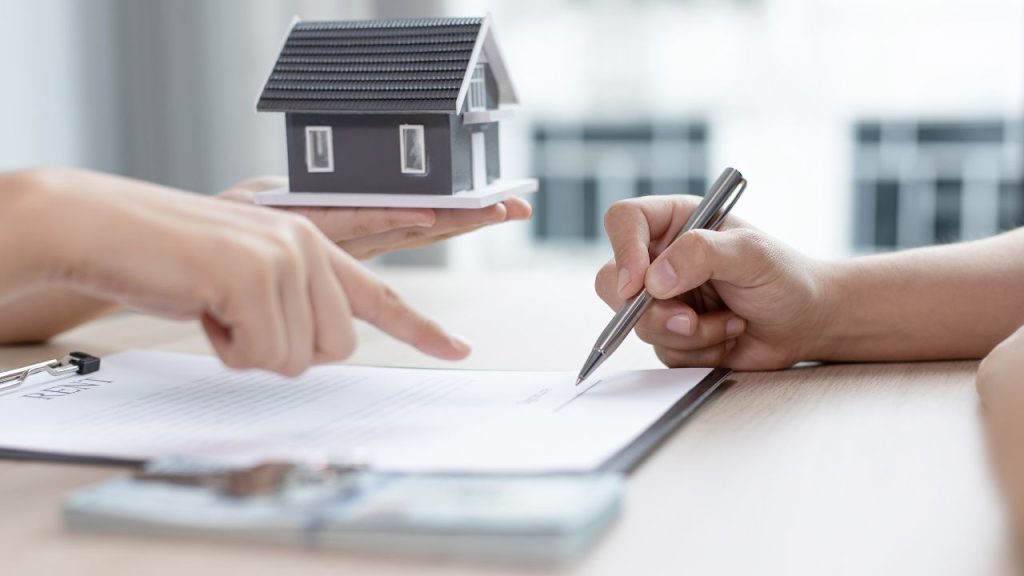
As a first-time renter, you must understand the basics of renting a property and signing a lease.
This includes knowing about rent payments, security deposits, utilities, and the rental agreement with the property owner.
A lease is a binding contract between you—the renter—and the property owner.
It outlines the terms and conditions of your tenancy, covering aspects such as the duration of your stay, rules and regulations, and monthly rent due date.
Your security deposit is a sum of money you pay upfront to cover any potential damages or unpaid rent during your stay.
This amount usually equals one or two months’ rent and is refundable, provided no issues arise during your tenancy.
Rent payments should be made on the agreed-upon date each month, as specified in your lease.
On-time payments are crucial to maintaining a good relationship with your landlord and avoiding late fees.
Remember that you are responsible for the utilities at your rental property, unless otherwise specified in your lease.
This can include electricity, water, heating, and possibly services like internet and cable TV. Ask your landlord for clarification on which utilities are included and which ones you need to handle.
2. Planning and Budgeting
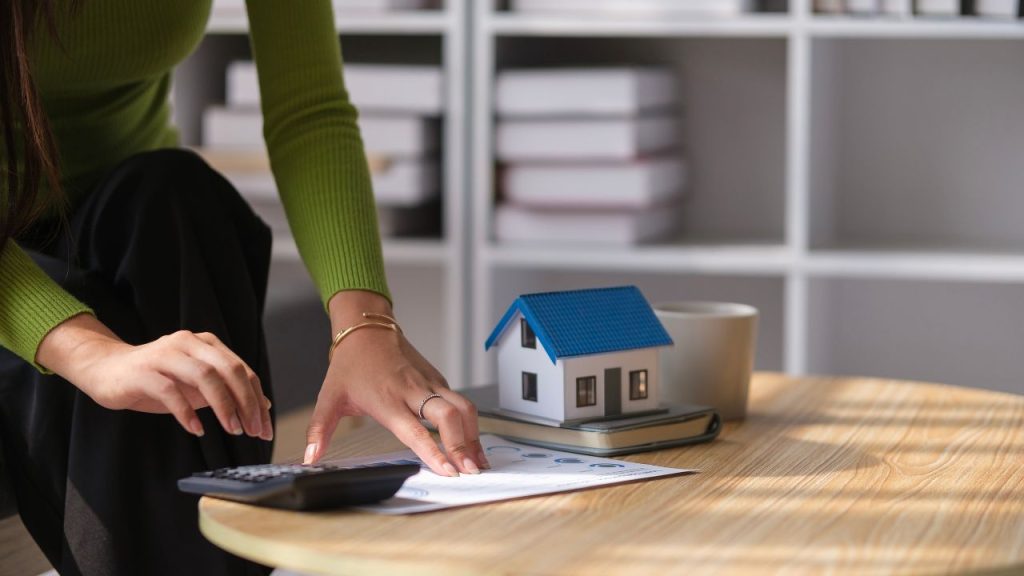
Knowing how much you can afford for rent, utilities, and other apartment-related expenses is crucial.
A great rule to follow is the 30 percent rule, which states that you shouldn’t spend more than 30% of your gross income on rent.
Speaking of utilities, remember to factor them into your budget. You’ll need to cover costs for electricity, water, gas, and possibly internet and cable.
Try asking your landlord or potential neighbors about the average utility costs in the building or area to understand better what to expect.
Furniture is another significant expense when renting for the first time. Before moving in, please list the essential furniture items you’ll need and create a realistic budget for purchasing them.
Be sure to include items like a bed, couch, dining table, and any necessary appliances.
Remember to account for one-time expenses, such as moving costs, security deposits, and application fees, when planning your move.
These costs can add up quickly, so having enough money saved and prepared to cover them is essential.
3. Application Process
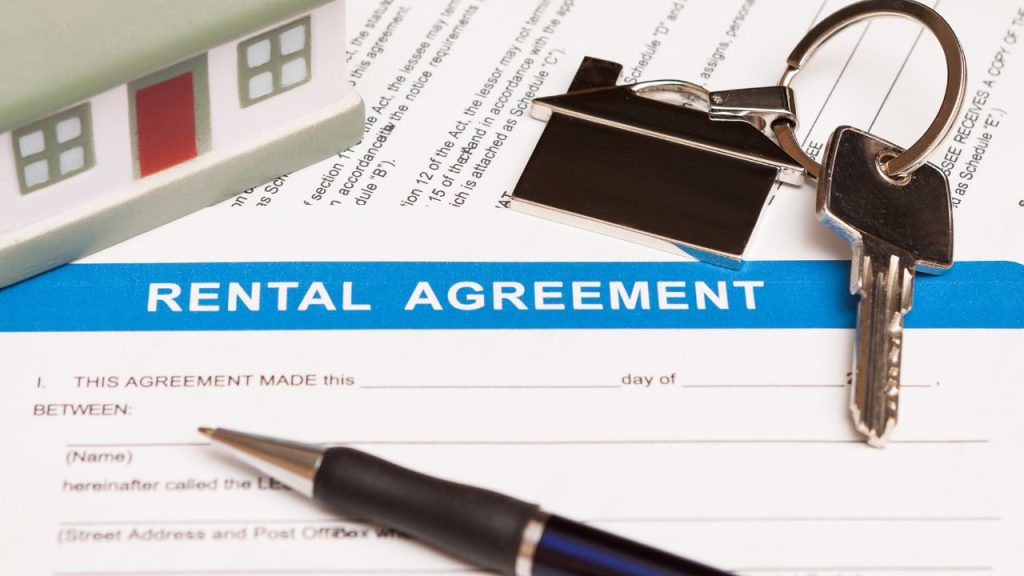
Make sure to fill out the rental application accurately and completely. This includes providing your personal information, rental history, and employment details.
Landlords will use this information to assess if you would be a good tenant, so filling it out thoroughly can make a difference.
Next, be prepared to pay the application fees. These non-refundable fees usually cover the costs of a credit check and background check.
Knowing your credit score beforehand can give you an idea of where you stand and if you need a cosigner.
In addition to the application, having proper documentation is crucial. Gather your proof of income to show that you can afford the rent.
This can include recent pay stubs, bank statements, or a letter from your employer.
4. Choosing the Right Apartment
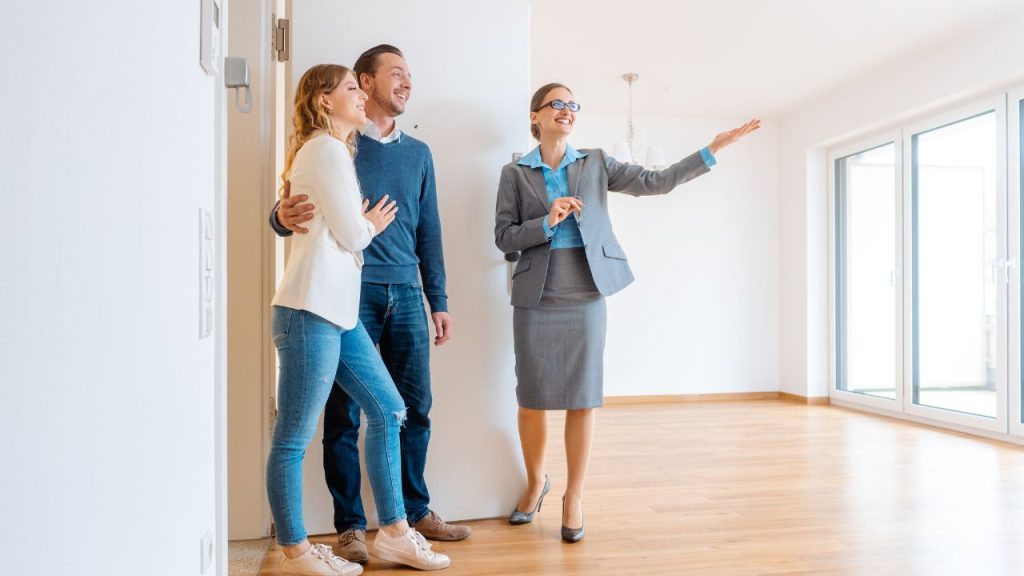
Location is a crucial factor when choosing an apartment. Consider the proximity to your job, public transportation, and amenities like grocery stores and restaurants.
If you own a car, check for parking availability and any additional associated fees.
Take the time to list your desired amenities and prioritize them, such as in-unit laundry, a gym, or pet-friendliness.
This will help you stay focused during your apartment search and find a place that meets your needs.
Be ready to compromise, as finding an apartment with all your preferred amenities within your budget is rare.
Whether you find out more at Hudson Condos, Google Maps, or even Yelp – it’s essential to know what you’re getting into.
Please spend some time and check out reviews of the neighborhood, ensuring that it provides the amenities you need and has a safe environment for your family.
This important step helps you avoid the dreaded “buyer’s remorse.” To make sure your research is as thorough as possible, take the time to talk to current residents in the area.
5. Moving In and Setting Up
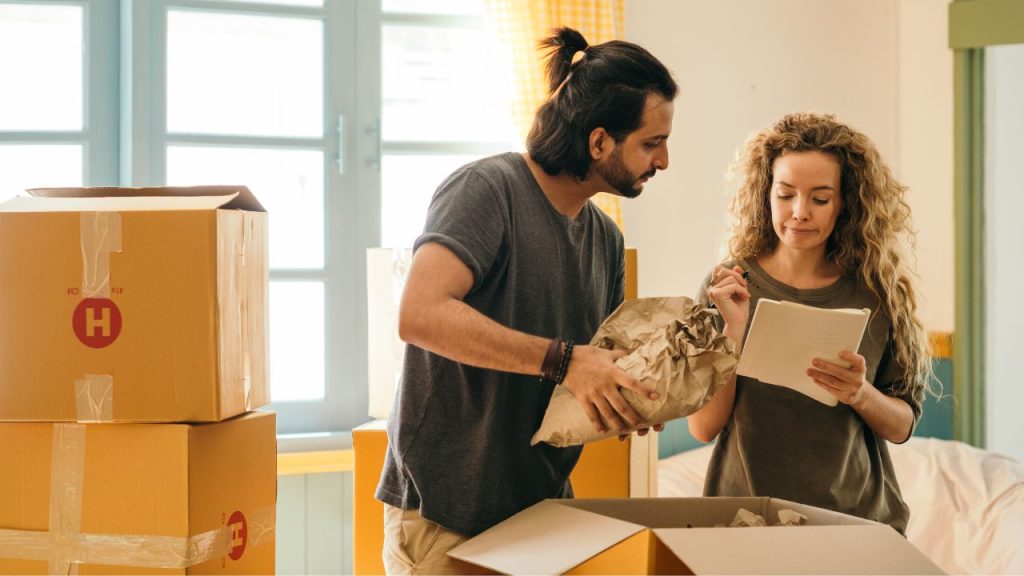
When moving into your new place, the first thing you’ll want to do is to bring in all your belongings.
Start by packing your essentials, such as clothing, toiletries, and important documents, in separate boxes to organize the unpacking process.
Next up, take care of utilities such as electricity, gas, and internet services. Contact your local utility providers to set up accounts and schedule service activation.
Now that you’ve settled the basics, it’s time to focus on furnishings. Prioritize the most essential items, like a bed, sofa, and dining table, before moving on to other pieces.
Another important aspect of setting up your new home is stocking up on household items.
Start by listing all the essentials for each room, such as kitchen utensils, bathroom organizers, or even cleaning products. This makes tracking what you already have and still need to purchase easier.
You might notice some items that are better off moving away from your life during the whole moving process.
This is a great opportunity to declutter and donate anything you no longer need or use. Not only will this make your move lighter, but it’ll also give you a fresh start in your new home.
READ MORE: Tips And Tricks For A Seamless Moving Day
6. Managing Damages and Repairs
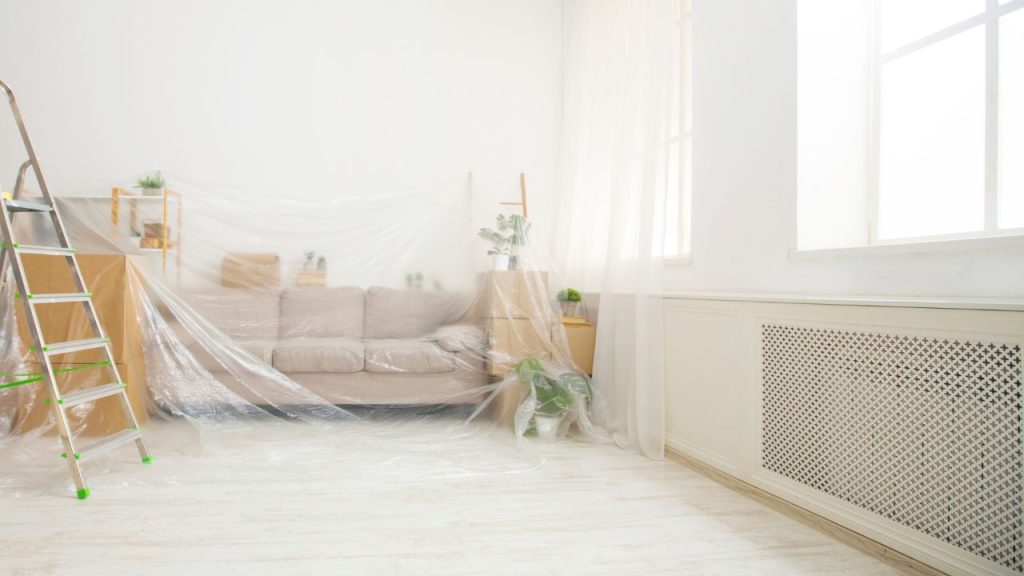
As a tenant, you must take care of minor damages and repairs. For instance, if you accidentally break a window or damage the walls, you may need to cover the costs of fixing it.
In some cases, your landlord may include a list of standard repair costs in their lease agreements, which details different types of damage and how much you’ll be charged for repairs.
Remember that your security deposit serves as financial protection for your landlord. If you’re responsible for any damages, the cost of repairs may be deducted from your deposit when you move out.
Regular maintenance procedures, such as properly cleaning and inspecting appliances, can help prevent damages and costly repairs in the long run.
By being proactive and attentive to the condition of your rental, you can save yourself from potential headaches and unexpected expenses.
7. Dealing with Roommates and Neighbors

When it comes to roommates, communication is key. Discuss your expectations regarding chores, rent, bills, and quiet hours.
Establish ground rules up front to minimize potential misunderstandings or conflicts later on. Be bold in addressing issues; honest, open conversations can resolve problems quickly.
Sharing space means compromising and respecting each other’s boundaries. If one of you is a night owl and the other an early bird, agree on acceptable noise levels during specific hours.
Be mindful of each other’s schedules, the cleanliness of shared spaces, and the impact of your actions on your roommates.
When encountering neighbors in your building or the surrounding area, being friendly and approachable is essential. Introduce yourself when you move in and try to learn their names.
This helps to build a sense of community and trust. Show consideration by keeping noise levels down, especially during designated quiet hours.
READ MORE: How to Choose the Perfect Neighborhood for Your New Home
8. Insurances for Renters
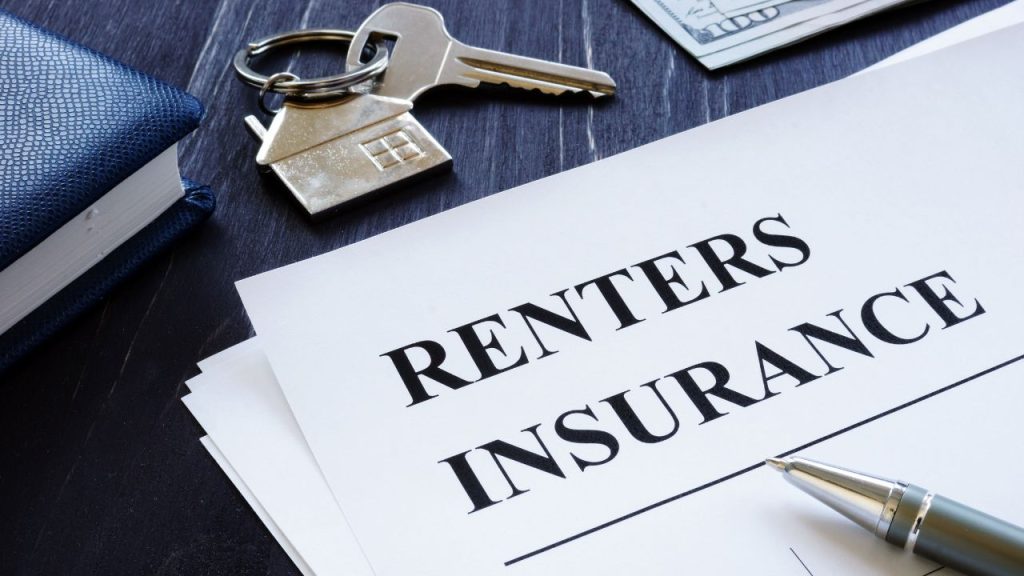
Renters insurance is a type of coverage that protects your personal property in the event of damage or theft. It can also provide liability coverage if someone gets injured in your rented home.
While your landlord’s insurance typically covers the physical building, you must have renters insurance to safeguard your possessions and financial well-being.
When shopping for renters insurance, consider the following:
- Compare quotes from multiple providers to get the best coverage and price.
- Choose a policy that covers the replacement value of your belongings, rather than their actual cash value.
- Adjust your coverage limits based on the value of your possessions and potential liability risks.
9. Importance of Reading the Lease Agreement

Understanding the terms and conditions can help avoid any issues or surprises during your tenancy.
One important aspect to look for in the lease is the subletting policy. This is important if your plans change or you need to move before the lease term ends.
Knowing your options for subletting can save you from potential headaches and financial losses. Be aware that some landlords may have strict policies or not allow subletting.
The lease agreement also covers the rental costs and payment terms. Ensure that you understand how much rent you’ll be paying when it’s due and the accepted payment methods.
When reviewing the lease agreement, if you find certain terms you don’t agree with or are uncomfortable with, don’t hesitate to discuss them with your landlord.
Sometimes, you can compromise on particular clauses or negotiate for better changes for both parties.
10. Considerations for Pet Owners
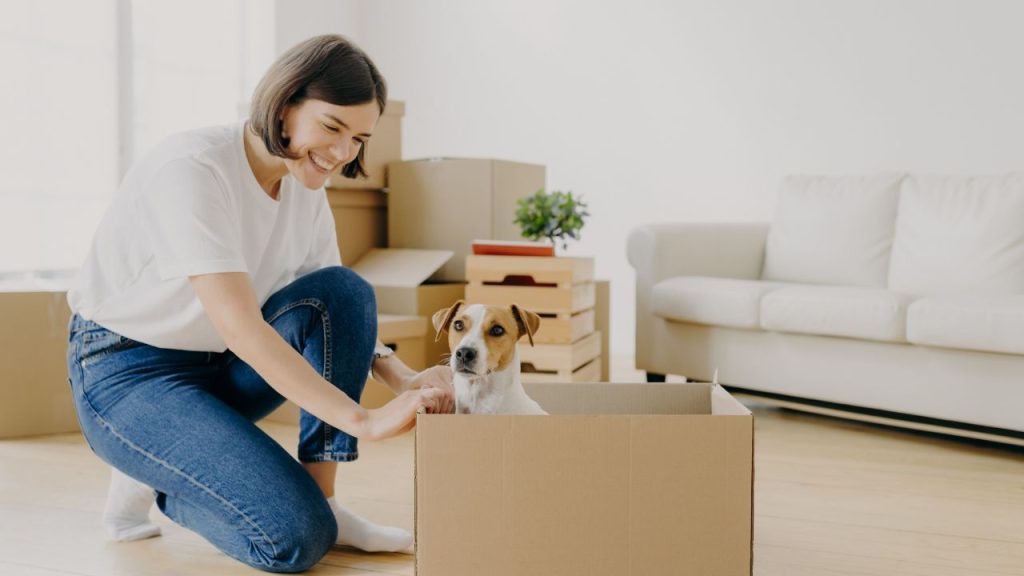
Only some landlords or property managers allow pets, so it’s crucial to double-check their pet policy before signing any lease agreements.
Always verify that the lease includes the pet policy to clarify understandings later. To ease your search, you can look for animal-friendly listings and realtors using online classified ads.
Discuss the specific pet policy in detail when you find a pet-friendly property. This includes any breed or size restrictions, noise rules and proper pet care.
Ask about their expectations regarding animal behavior and any preventive measures that need to be taken, such as flea treatments.
Remember that many landlords charge additional pet fees or deposits to cover potential damages caused by your pets.
It’s essential to budget for these costs and determine whether the property fits your financial plan.
11. Parking and Transportation
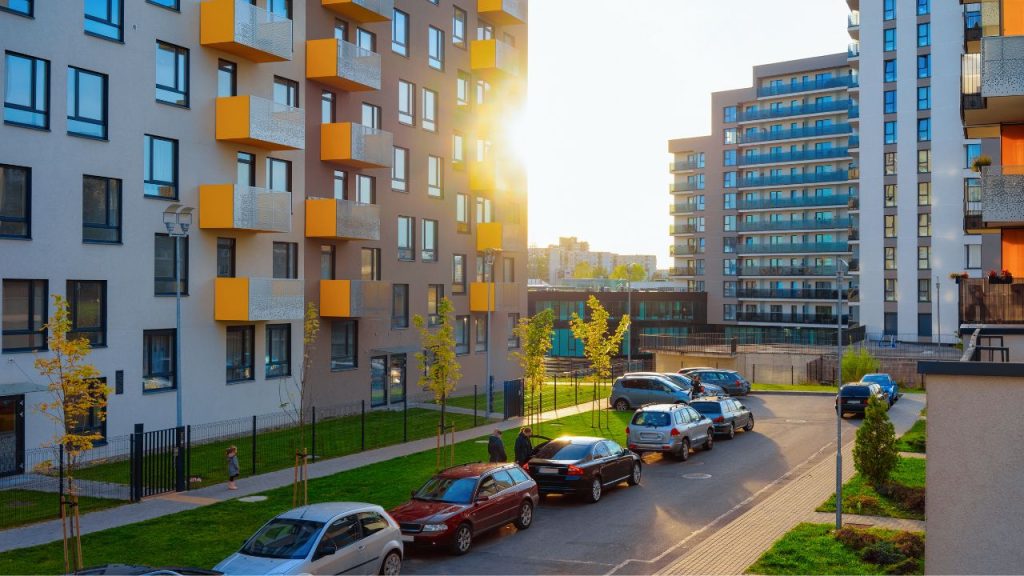
Inquire about the parking situation at your potential new home.
If it comes with a designated parking spot, ensure it’s suitable for your car’s size and that the parking fees are within your budget.
If it doesn’t include private parking, you may need to rely on street parking or find nearby public parking facilities.
Remember that depending on-street parking could be challenging in busy neighborhoods, so evaluate the availability of secure spaces to park your car.
The proximity to public transportation is another crucial aspect to evaluate. You may not find driving ideal for everyday commuting, depending on your lifestyle and routine.
Evaluate the availability and accessibility of buses, trains, or subways near the rental property.
Look for information on their schedules and the ease of commuting to your workplace or other regularly visited locations.
12. Stress Management and Independence

Moving into your first apartment is an exciting step towards independence but can also come with its share of stress.
To ensure a smooth transition, try incorporating some stress management techniques.
One important step is planning and creating a budget for yourself. This way, you’ll know what you can afford and avoid facing financial challenges once settled in.
Additionally, make sure to thoroughly research your options and think about the intangibles when viewing apartments.
Consider location, amenities, and overall safety before signing any contracts. Taking your time to find the right place will save you from potential stress in the future.
Living independently for the first time can be daunting, so it’s important to foster your own sense of independence.
Start by ensuring you have all the necessary items to make your space comfortable, and then take some time to get acquainted with your new neighborhood.
This will help you feel more confident and settled in your new environment.
13. Moving Out Process

Moving out of your first rented home involves a few important steps. This process will help you leave on good terms with your landlord and maintain a positive rental history.
Review your lease agreement and check for any requirements or conditions related to moving out.
Some leases may require you to give a certain amount of notice before moving out, while others might have specific cleaning or repair obligations.
Next, create a cleaning checklist to ensure you leave the property in the same condition as when you moved in.
This may include washing windows and sills, cleaning curtains and blinds, wiping doors and door frames, and disinfecting sinks, tubs, and showers.
Remember to clean kitchen appliances and any other items included in your rental.
As you pack your belongings, consider removing items you no longer need or use. This will help lighten your moving load and make the process more manageable.
Be sure to notify your landlord and utility providers about your move-out date. Schedule service shut-offs or transfers to your new address to avoid unnecessary charges.
Once you’ve completed these tasks, conduct a final walk-through of the property with your landlord.
This is an opportunity to discuss any potential damages or repairs and the return of your security deposit.
Having a clear understanding of your landlord’s expectations at this stage can help ensure a smooth transition out of the property.
In conclusion, smart apartment hunting, understanding lease agreements, maintaining good communication with landlords, and protecting your belongings with renters insurance are all important aspects of a successful rental experience.
By implementing these strategies and being prepared, you can ensure a smooth transition into your new home and enjoy it without any added stress or financial burdens.
Frequently Asked Questions
What are the necessary steps to renting an apartment?
To rent an apartment, start by determining your budget, keeping in mind that your rent should be no more than 35% of your gross income. Next, make a list of your preferred neighborhoods, and search for apartments with amenities that suit your lifestyle. Before signing the lease, arrange a walk-through with the landlord to check for damages and necessary repairs. Lastly, have your documents prepared and be ready for a background check.
How can I find the best deals on apartments?
To find the best deals on apartments, consider off-peak seasons, like winter, when demand is usually lower. Research the average rental prices in your preferred neighborhood and use online rental search platforms to compare prices. Additionally, don’t be afraid to negotiate the rent with the landlord, as they may be more flexible than you think.
What should I expect during the apartment-hunting process?
During the apartment-hunting process, expect to attend multiple apartment viewings and engage in thorough research on the neighborhood, local amenities, and transportation options. Keep in mind that the rental market is often competitive, so be prepared to make quick decisions and have your documents ready. Remember that communication with landlords and rental agents is key.
Are there any specific documents required for first-time renters?
First-time renters should have the following documents ready: proof of income (e.g., pay stubs or a letter from your employer), credit report, rental history (if applicable), and references from previous landlords or employers. Additionally, be prepared for a background check, as most landlords will require one.
What are some hidden costs to watch out for when renting a home?
Hidden costs to watch out for include utility bills, renters insurance, security deposits, and potential pet fees. Moreover, look out for lease terms that may impose extra rent costs for additional occupants, or any fees related to maintenance and repairs. Be sure to read the lease carefully and ask questions if anything is unclear.
How can I effectively communicate with landlords during the rental process?
To effectively communicate with landlords, be both polite and professional. Respond promptly to their calls and emails, and provide accurate information when filling out rental applications. When attending apartment viewings, ask relevant questions about the property and any concerns you may have. Finally, don’t be afraid to negotiate rent or lease terms.


